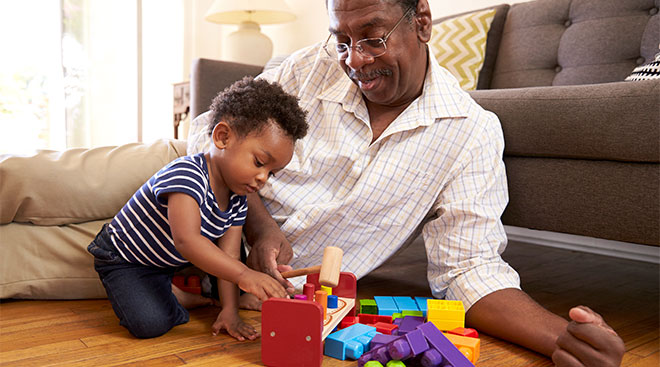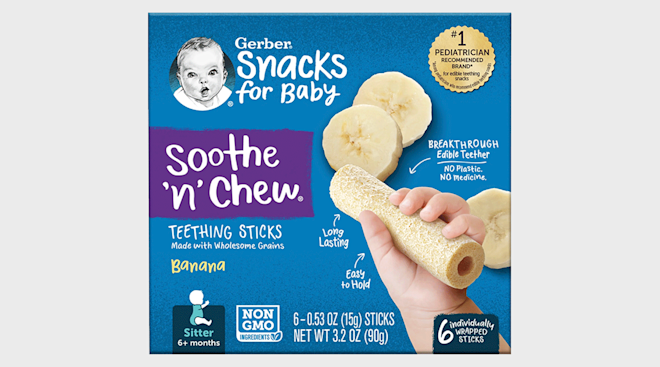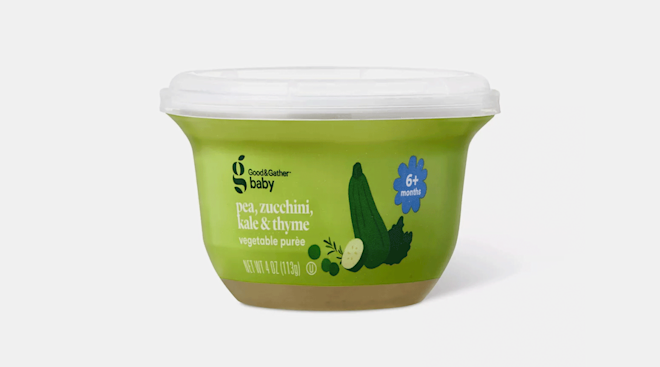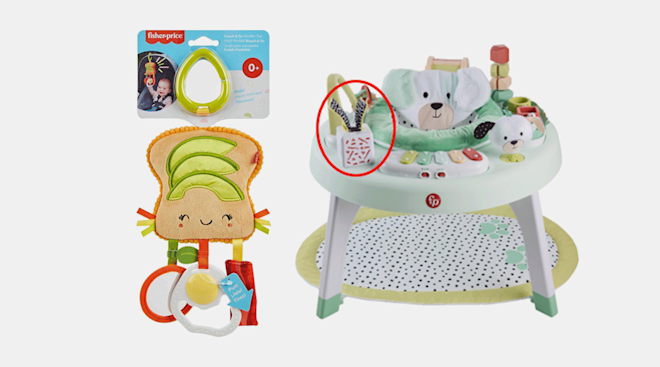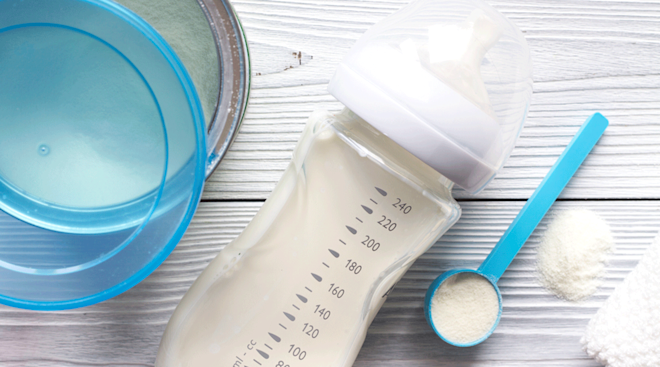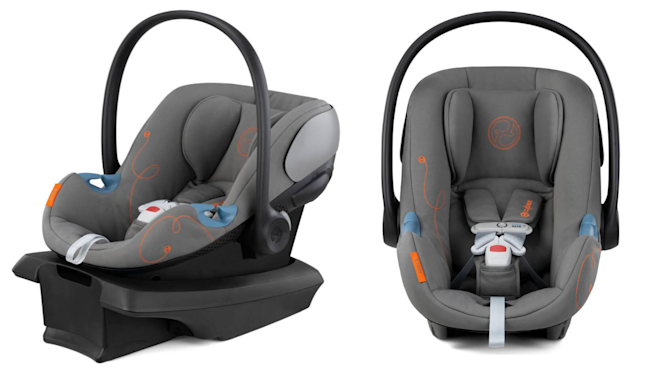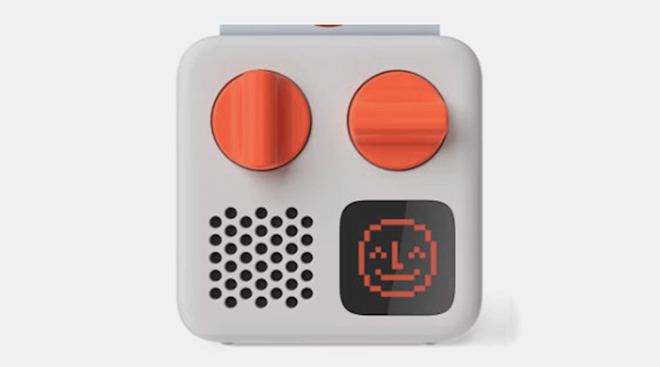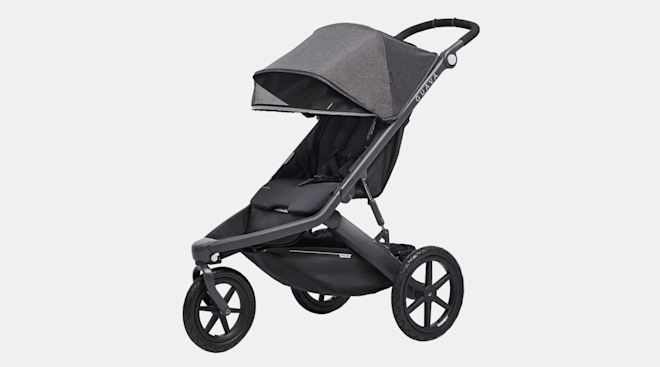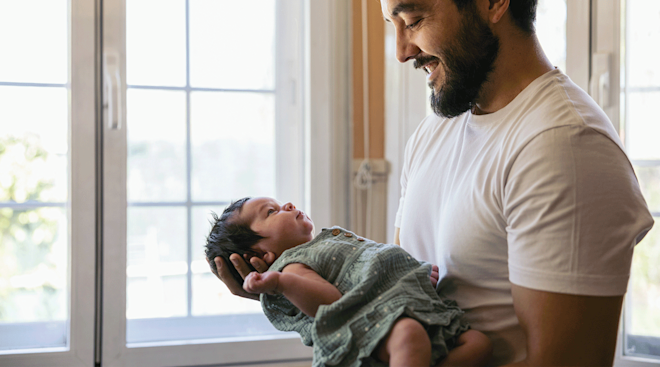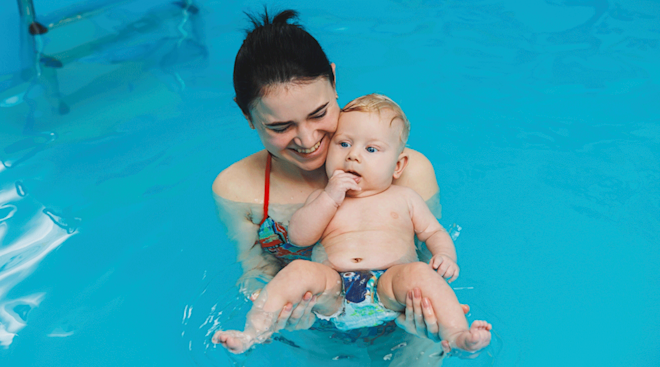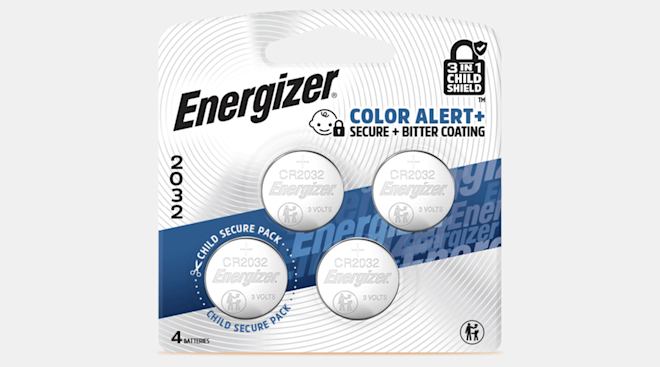8 Ways Baby Safety Has Changed Since Grandparents Were Parents
Who among us hasn’t heard the joke, “my parents did [insert lax behavior] when I was little, and I turned out fine!” But if you’re a first-time grandparent taking care of a new baby, it’s important to understand that the rules for keeping babies safe have changed profoundly since your own parenting days. Read on for an overview of how the landscape has changed, so you know exactly how to best keep your grandchild safe when under your care.
“I was told by my mother that she held me in her lap in the front passenger seat on my way home from the hospital when I was born in 1977,” says Jill Garripoli Pedalino, DO, owner and founder of Healthy Kids Pediatrics in Nutley, New Jersey. That’s not surprising, since it wasn’t until the mid-1980s that lawmakers in all 50 states had passed legislation requiring children under a certain age to be restrained in some type of car seat. Looking back, it seems like a no-brainer since it’s estimated that car seats can reduce up to 82 percent of the preventable injuries that can happen when kids aren’t properly secured.
Today, the car seat guidance is even stricter and more nuanced, and kids stay rear-facing longer, which might come as a surprise if you also have older grandchildren and remember flipping them around as soon as they hit 2 (or earlier). The American Academy of Pediatrics recommends that children stay in the rear-facing position until they outgrow the car seat’s weight and/or height limits—essentially, as long as possible. “This is because their heads weigh a lot more in relation to their bodies at this age, and their spines are not as strong and developed, so they get better support facing backwards," says Nicole Steber, MD, a pediatric hospitalist with Riley Hospital for Children in Indianapolis and an assistant professor of clinical pediatrics with Indiana University School of Medicine. The switch from rear-facing to forward-facing may happen when the child is 2 years old, but it also might happen much later, around 3 or 4, depending on the child and the seat.
If you worry your grandchild’s legs look a little squashed, don’t be. “Think about when little kids play on the floor and put their legs in all kinds of positions without even noticing,” says Steber.
You might remember putting your own babies to bed on their bellies, perhaps tucked under a blanket (or two) with a few favorite stuffed animals nearby. Maybe there was a brightly colored comforter with a matching padded bumper. Not anymore.
Today, the recommended sleep set-up might look surprisingly minimalist: Toys and loose blankets are not allowed, since they could cause suffocation, and other than a tightly fitted sheet and mattress protector underneath, the crib is bare. If it’s chilly, you can add a wearable sleep sack over baby’s pajamas.
Babies are always put down to sleep on their backs, never their bellies (even if they spit up a lot—the gag reflex prevents them from choking). The rules for safe sleep began to shift during the 1990s, as researchers began to figure out that putting babies to sleep on their stomachs greatly increased their risk of dying of Sudden Infant Death Syndrome (SIDS). Since parents and caregivers started putting babies to sleep on their backs, SIDS deaths have declined significantly—by some estimates, up to 50 percent. “This is another example of research showing a direct correlation between a change in old thinking and a decrease in child mortality,” says Pedalino.
You might also spot a small fan in your grandchild’s room—increased air flow has also been shown to help decrease the SIDS risk. It won’t make your grandbaby catch a cold. “We see a lot of grandmas worrying about babies being chilly and getting sick, but remember that you don’t get a viral infection from being cold, you get one from being around another person who has a viral infection,” says Steber.
Is your grandbaby not sleeping long stretches? When your kids were infants, you might have been told that adding some rice cereal to the bottle will help settle their stomach and encourage a longer snooze—but today, doctors strongly discourage this practice. “Feeding babies anything other than breast milk or formula earlier than 4 months old increases their risk of obesity later in life,” says Pedalino, adding, “they regulate their intake based on volume, not calories, so they still drink the full bottle, but are getting extra calories.”
There is an exception: If baby is spitting up excessively and struggling to gain weight, the pediatrician may approve rice cereal, but they’ll give detailed instructions on how much to use. “Keep in mind that less than five percent of babies actually need rice cereal supplementation, and parents should always talk to the doctor before giving them anything besides breast milk or formula in their bottles,” says Steber.
Another thing Steber has seen grandparents try: putting plain water into the bottle. It seems like it would make sense on a hot day, but it’s actually dangerous. “In babies younger than 6 months, this can actually cause their sodium levels to drop and lead to seizures,” she says. When can you start giving babies water? Once babies are eating solids (usually around 4 to 6 months), you can start to offer a few sips with food, mainly to get them used to the taste, since drinking H2O is a healthy habit.
If you still have the crib your kids used in your attic, don’t even think about passing it down. “Older cribs may have lead paint that can chip off and be ingested,” says Pedalino. And you might have loved the old drop-side style, which was convenient, but those were outlawed in 2010 after being linked to dozens of infant injuries and even deaths. (Don’t go buying a used one on the internet!) “It’s very important to have a crib that meets current safety regulations in terms of mattress support, crib slat width and hardware durability,” says Pedalino.
Traditional baby walkers—meaning the circular ones on wheels that the child sits in—are strongly discouraged by the AAP, which has called for them to be banned. “Walkers are fast modes of transportation and babies can get into trouble pretty quickly; they might roll into a hot stove, heater or swimming pool, or tumble down a flight of stairs,” says Pedalino. “They can also discourage children from learning to walk on their own.” Instead, when baby is old enough, try a push toy; before that, you can help develop gross motor skills and strengthen their muscles by encouraging lots of tummy time and free play on the floor.
You may remember using delightfully scented baby powder on your own children after each diaper change, but this is no longer recommended. “Babies have tiny lungs that are still developing, and inhaling powder can be harmful,” says Pedalino, who instead recommends using zinc oxide cream to form a protective barrier between the skin and the diaper.
Back in the day, some parents would rub whiskey on babies’ gums to soothe them when a new tooth was coming in. Today, pediatricians don’t even recommend medicated teething gels. “If you rub alcohol on a baby’s gums, they might stop crying, but they also might stop breathing too,” says Steber. Pedalino adds that even over-the-counter teething medicines should be avoided. “They can cause a rare red blood cell condition [called methemoglobinemia] or even just numb the mouth too much, affecting swallowing,” she says. Instead, try massaging baby’s gums with a wet, cold washcloth or offering a fun teething toy.
It’s important that everyone who spends time regularly with the new baby is up to date on their vaccines. On the list is TdaP, which protects against tetanus, diphtheria and acellular pertussis, also known as whooping cough, a potentially life-threatening illness for babies. “Pregnant women will get one before they deliver, but all other adult caregivers should also get the TdaP vaccine booster every 10 years,” says Steber. Other important ones include the annual flu shot and a COVID-19 vaccine. “Because infants are too young to be vaccinated themselves, we can think of this as cocooning them by vaccinating all regular caregivers in addition to Mom and Dad,” says Pedalino.
About the experts:
Nicole Steber, MD, is a pediatric hospitalist with Riley Hospital for Children at Indiana University Health. She also serves as an assistant professor of clinical pediatrics with Indiana University School of Medicine and director of pediatric education at IU Health West Hospital. Steber earned her medical degree from IU School of Medicine, where she also completed her internship and residency. She works mostly with newborns and enjoys helping children and their parents.
Jill Garripoli Pedalino, DO, is an award-winning pediatrician, author, keynote speaker and owner of Healthy Kids Pediatrics in Nutley, New Jersey. She obtained her degree in osteopathic medicine from the University of Medicine and Dentistry of New Jersey and completed her pediatric specialty training at Robert Wood Johnson University Hospital. When she’s not caring for her patients, posting helpful parenting articles, writing children’s books or delivering keynote presentations, she enjoys hiking, biking and kayaking with her family.
Please note: The Bump and the materials and information it contains are not intended to, and do not constitute, medical or other health advice or diagnosis and should not be used as such. You should always consult with a qualified physician or health professional about your specific circumstances.
Navigate forward to interact with the calendar and select a date. Press the question mark key to get the keyboard shortcuts for changing dates.
































